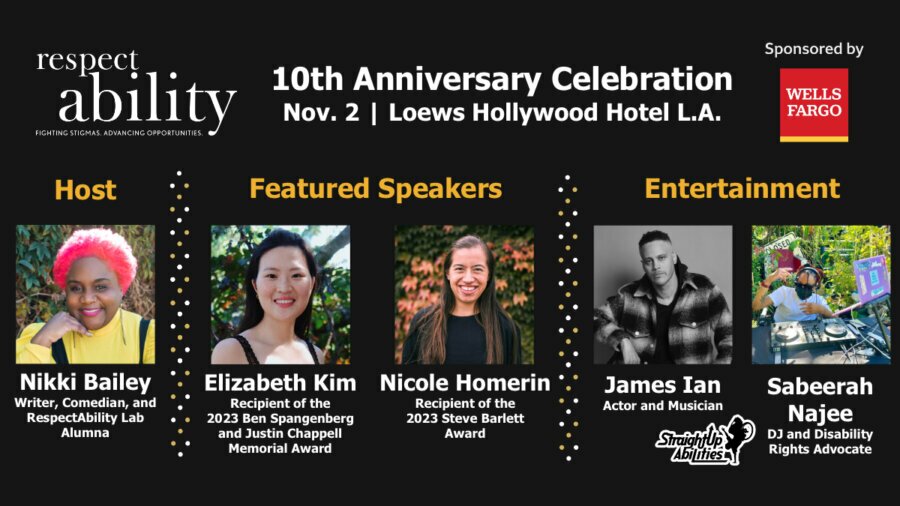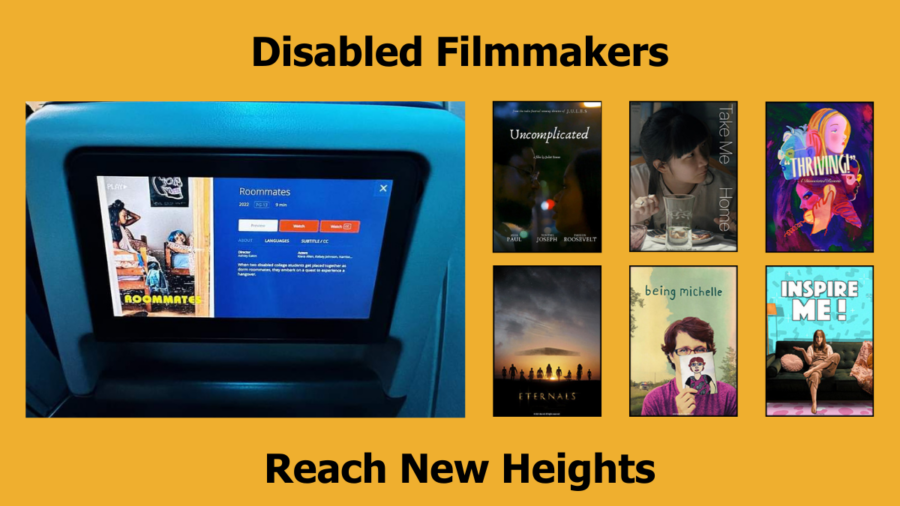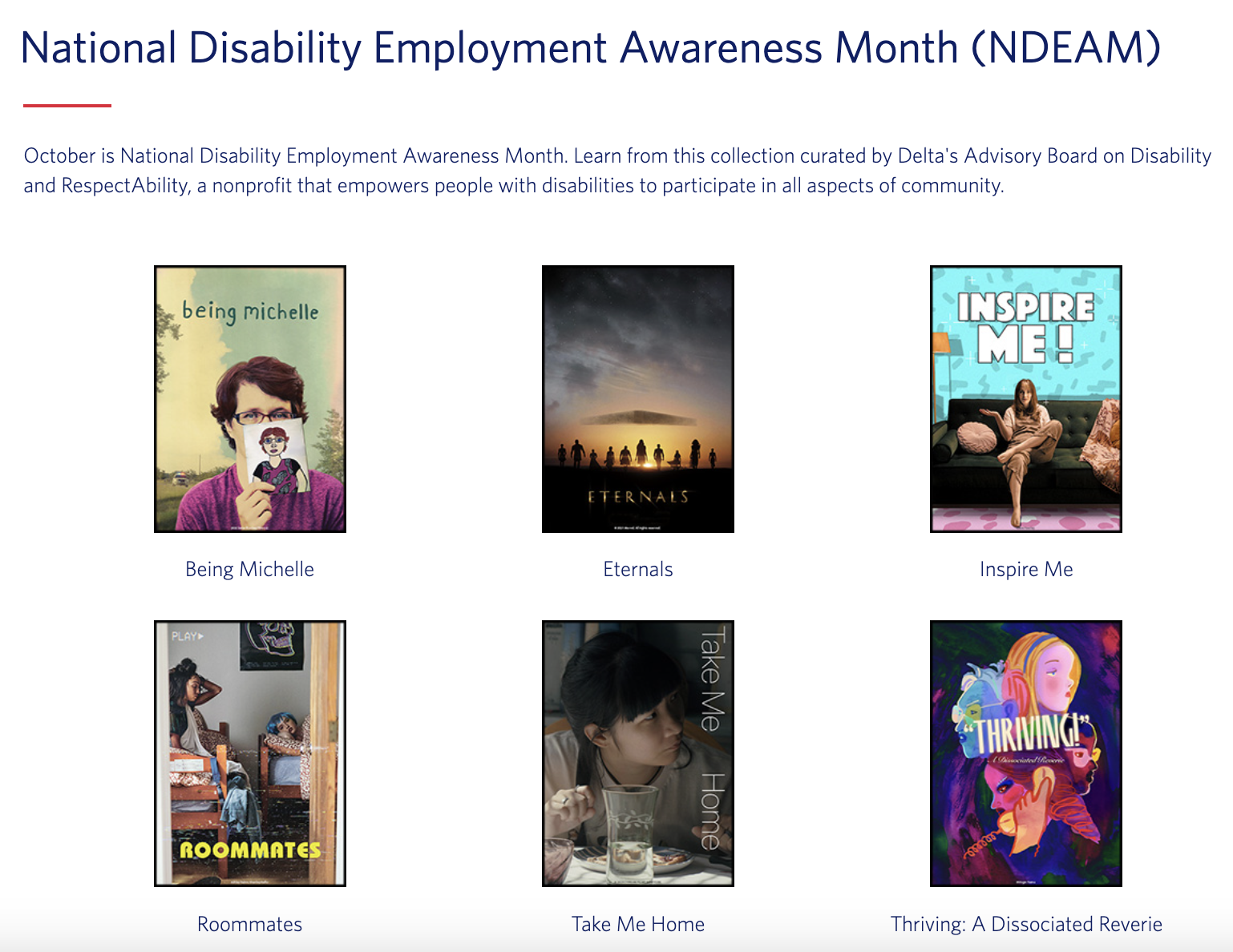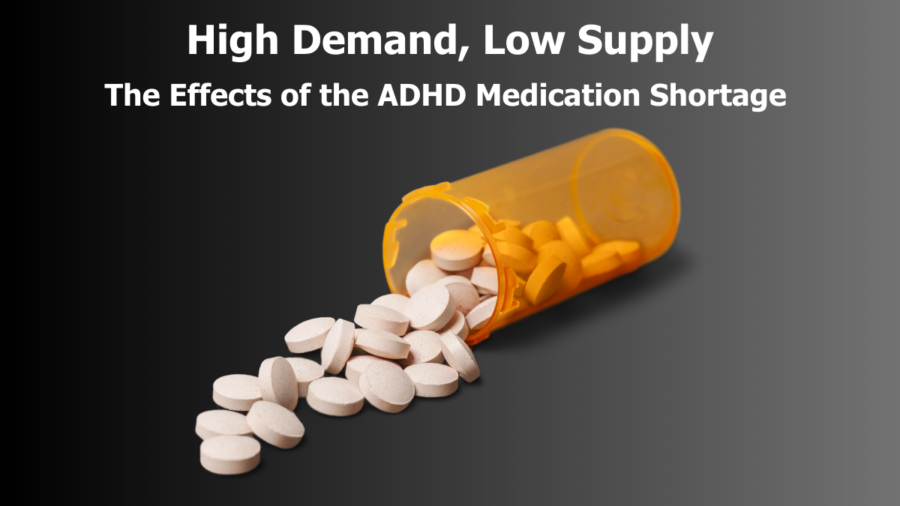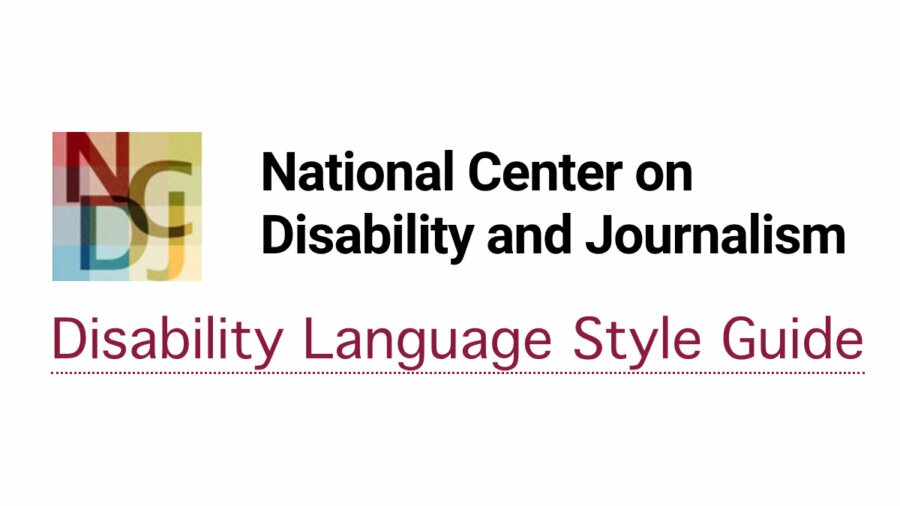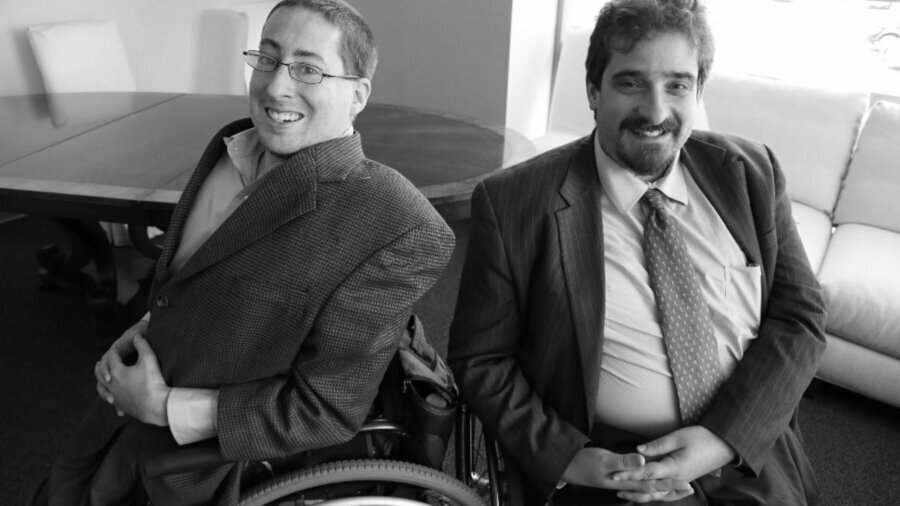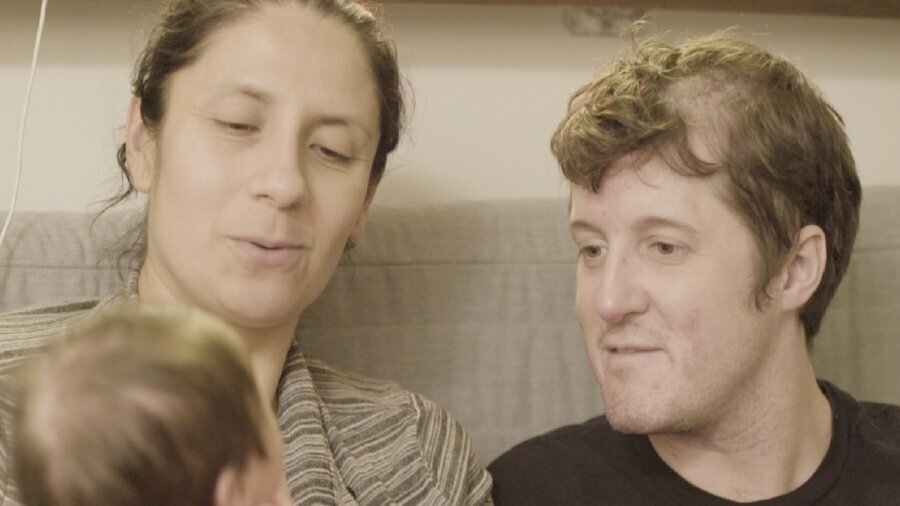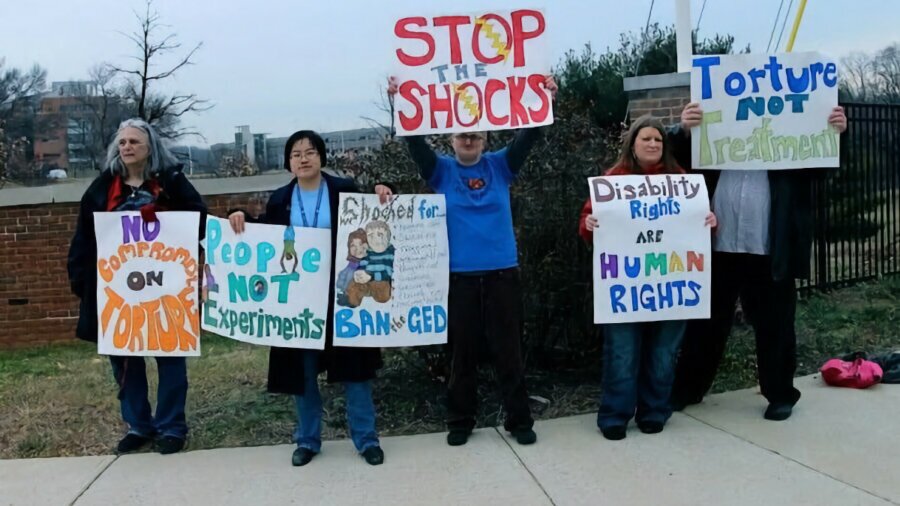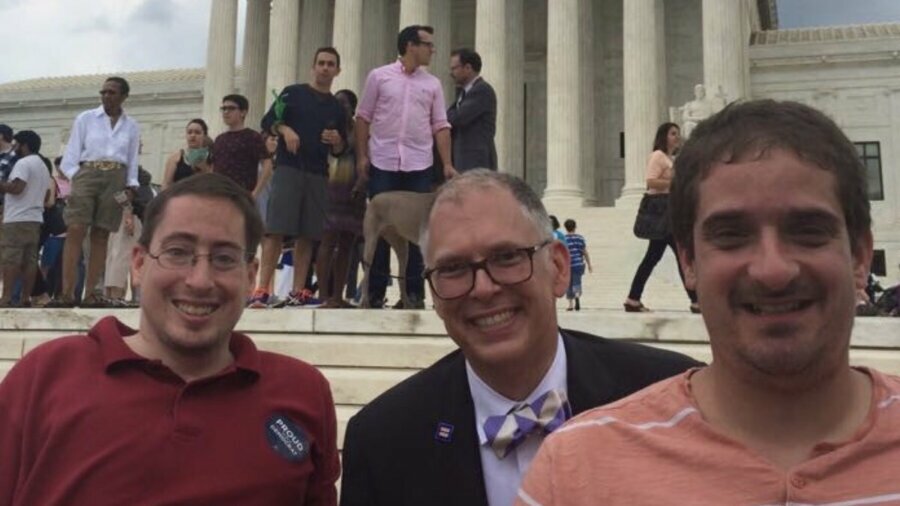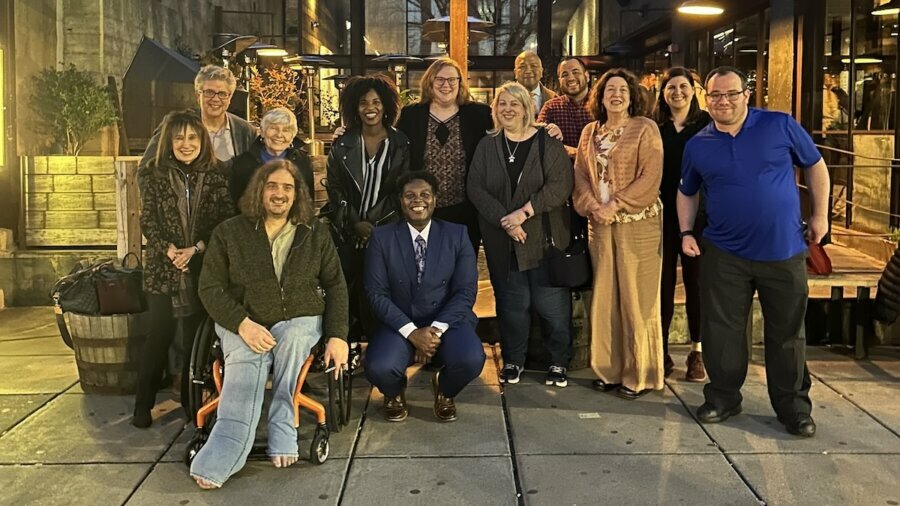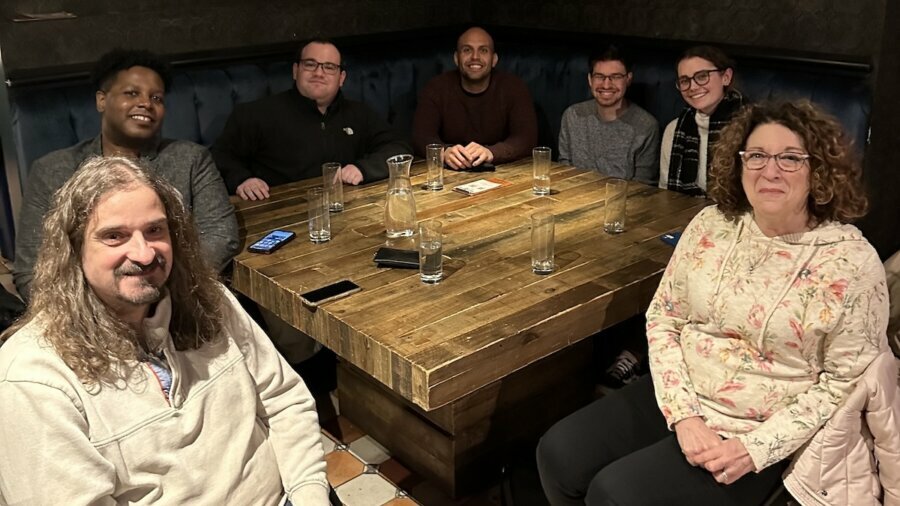Los Angeles, October 26 – The national disability advocacy nonprofit RespectAbility is excited to announce the lineup of entertainers for its 10th Anniversary Celebration next week, featuring Platinum Sponsor Wells Fargo. The event will be hosted by actor, comedian, and RespectAbility Entertainment Lab alumna Nikki Bailey. Musician James Ian and dance troupe Straight Up Abilities will be the featured performers, and Sabeerah Najee will be the featured DJ. [continue reading…]
News
Disabled Filmmakers Reach New Heights this National Disability Employment Awareness Month
In celebration of National Disability Employment Awareness Month (NDEAM), Delta Air Lines is featuring seven disability-inclusive films in a Top Picks collection on their seatback, in-flight entertainment. Six of these films were written and/or directed by Disabled filmmakers, and all include Disabled individuals in front of the camera. In addition, these films are available with captions and audio description, creating accessibility for viewers who are deaf and/or blind.
“As both an executive producer of Being Michelle and Vice Chair of RespectAbility, which has worked on some of the projects included in the Delta Studio NDEAM Top Picks collection, I am excited for the world to experience entertainment with powerful disability perspectives told through a lens in which disabled persons had a direct hand in creating both behind and in front of the camera,” said RespectAbility Vice Chair Delbert Whetter, who is a deaf filmmaker based in Los Angeles. [continue reading…]
High Demand, Low Supply: The Effects of the ADHD Medication Shortage
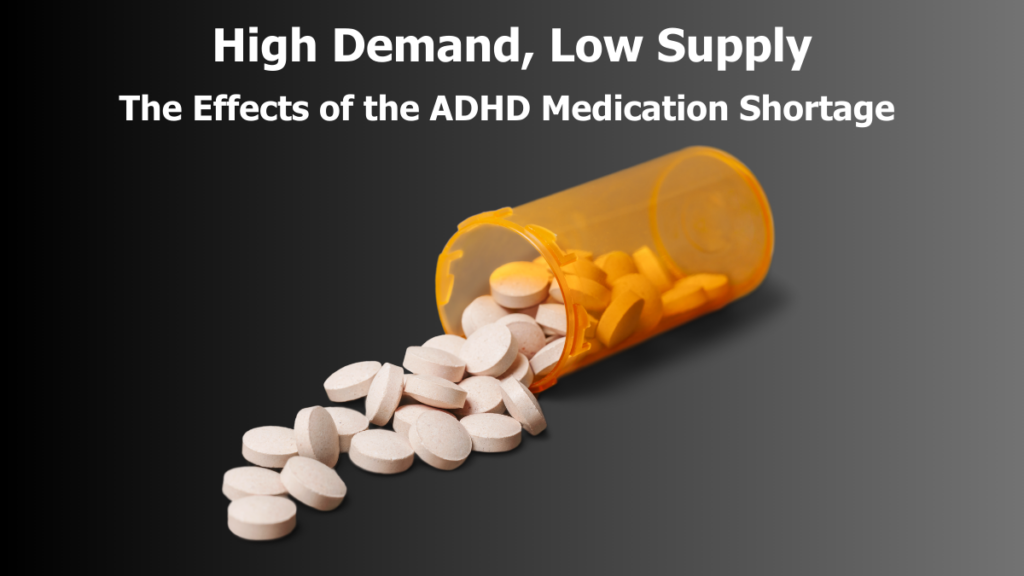 Around 8.7 million adults in the United States have Attention Deficit Hyperactivity Disorder (ADHD), with many relying on medication to be focused and productive. Many adults have been taking their ADHD medication since they were children, so it can be easy to take for granted the access they have had to common types of ADHD drugs. For much of the ADHD population, taking their daily dose of popular medications like Adderall, Ritalin, or Vyvance is as much a part of their morning routine as brushing their teeth. However, that routine is being forcibly altered for millions of people in the U.S. because of an ongoing shortage of ADHD medication. Many people are unable to find their medications, leaving them feeling frustrated and frazzled as they search for alternatives and solutions.
Around 8.7 million adults in the United States have Attention Deficit Hyperactivity Disorder (ADHD), with many relying on medication to be focused and productive. Many adults have been taking their ADHD medication since they were children, so it can be easy to take for granted the access they have had to common types of ADHD drugs. For much of the ADHD population, taking their daily dose of popular medications like Adderall, Ritalin, or Vyvance is as much a part of their morning routine as brushing their teeth. However, that routine is being forcibly altered for millions of people in the U.S. because of an ongoing shortage of ADHD medication. Many people are unable to find their medications, leaving them feeling frustrated and frazzled as they search for alternatives and solutions.
It has been almost a year since the FDA announced a nationwide shortage of Adderall. However, it is difficult to identify the cause because manufacturers are not required to tell the FDA about why there are interruptions in the production process. Some sources cite an increase in ADHD diagnoses as a potential cause. CDC data cited by Time shows that “8% more people in the U.S. filled a stimulant prescription in 2021 versus 2020.” Others think that government agencies and manufacturers are to blame. The Drug Enforcement Administration does not share the quotas it gives for medication production. Manufacturers do not have to share how much medication they make or what their capacities for production are. If they are underperforming, the public would not have a way to know that. People are left wondering when supply will meet demand and how much longer they will need to wait. [continue reading…]
Becoming A Better Disability Ally: Using the National Center on Disability and Journalism’s Language Guide
Early on in my Fellowship with RespectAbility I kept hearing the phrase “disability is not a monolith.” The definition of a monolith is a group of people who are thought of as being all the same. On the surface, it makes sense. No two people living with the same disability are the same or have the same experiences. However, I wondered what specific differences were important for me to be aware of to be a better ally. Learning about the different language choices and preferences felt like a significant piece to the puzzle. Having some previous knowledge of this didn’t mean I needed to stop learning. Language is constantly evolving, and since our words matter, I wanted to make sure this was an area I focused on.
The National Center on Disability and Journalism (NCDJ) has a comprehensive language style guide that breaks down different disability related terminology and diagnoses with background information and recommendations of inclusive, respectful language to use. Having access to a single source that covers a broad range of frequently discussed topics surrounding disability language etiquette has been an incredible asset in my learning journey.
It’s important to note that there is no universal rule on what language to use when describing someone with a disability. Only a person living with a disability can provide their preference, and those preferences will vary from person to person. You should always ask the person what language they prefer, but when you don’t have a direct source available, the NCDJ guide is a great tool to use. [continue reading…]
RespectAbility Honors Legacy of Ben Spangenberg by Renaming Justin Chappell Memorial Award
Elizabeth Kim to receive first-ever Ben Spangenberg and Justin Chappell Memorial Award at RespectAbility’s 10th Anniversary Celebration, sponsored by Wells Fargo
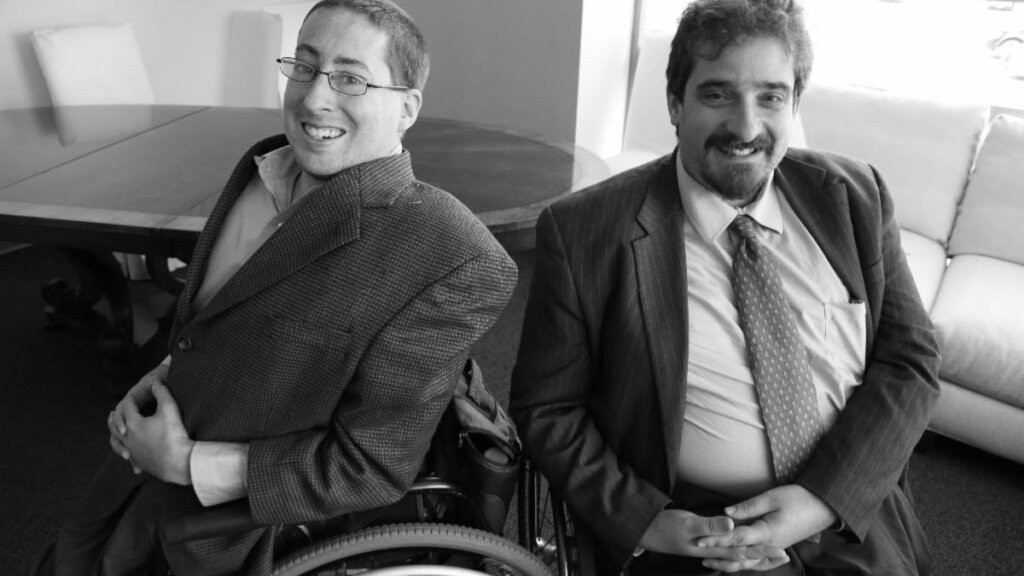
Justin Chappell and Ben Spangenberg
Los Angeles, October 17 – The national disability advocacy nonprofit RespectAbility is announcing that after the sudden passing of long-serving staff member, Ben Spangenberg, on September 29, 2023, the Justin Chappell Memorial Award has been renamed to honor Spangenberg alongside the person who first inspired this award, Justin Chappell. Spangenberg and Chappell were life partners, marrying in 2015 after marriage rights were extended to same-sex couples in all 50 states. Together, they advanced RespectAbility’s democracy and civic engagement work, spending several weeks in Iowa and New Hampshire interviewing presidential candidates in 2016. They met with all candidates, educating their campaigns on the importance of not only ensuring accessibility of events and materials but also creating thoughtful policies for helping people with disabilities achieve their goals and fully participate in their communities.
Spangenberg was a part of RespectAbility’s team since 2015, and from 2017 until his passing, served as the Senior Manager of RespectAbility’s National Leadership Program. Under his leadership, more than 200 Fellows graduated from the program, going on to careers in disability advocacy, on Capitol Hill, in philanthropy, and many other sectors. To honor Ben’s legacy of service, his family has requested donations in his memory to RespectAbility.
The newly renamed Ben Spangenberg and Justin Chappell Memorial Award honors a former or current Fellow of the National Leadership Program who demonstrates a solid commitment to advancing the disability community in policy, entertainment, or philanthropy. The 2023 Spangenberg-Chappell Memorial Award will celebrate former Fellow, Elizabeth Kim. Kim will receive $1,000 and be honored on stage at RespectAbility’s 10th Anniversary Celebration, featuring Platinum Sponsor Wells Fargo, in Los Angeles on November 2. [continue reading…]
Documentary “Derek Changes His Mind” Highlights Lived Disability Experience Navigating Broken Healthcare and Immigrations Systems
Los Angeles, Oct 17 – Director Derek Dabkoski’s masterly made documentary, Derek Changes His Mind, is a stunning and emotional piece. It follows the story of Dabkoski himself, who acquired a traumatic brain injury, leaving the right half of his body disabled, and his family’s struggle to gain citizenship and afford medical treatments for his disability to have better lives for themselves and their daughter.
In the documentary, Dabkoski talks about his life after acquiring his traumatic brain injury, including researching many kinds of medical treatments and studies to receive stem cells. This treatment would help restore some functionality to his right hand and leg to improve not only his life, but also help him support his wife and their young daughter. The course of the documentary displays many of the challenges that Derek and his family have had to face, from financial difficulties and immigration status to lack of access to medical treatments and studies needed for Derek’s disability. [continue reading…]
Stop The Shock
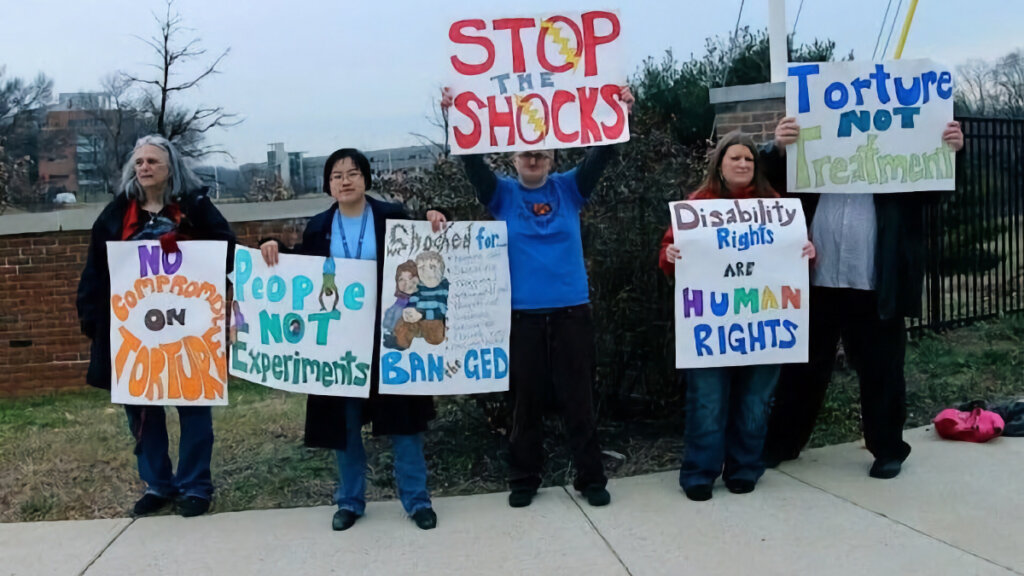 Since 1971, the Judge Rotenberg Center in Canton, Massachusetts has served as an institution for individuals with developmental disabilities. To help patents stop dangerous behaviors, the center uses aversive therapy, in which a patient experiences a form of discomfort given by a therapist if the patient engages in perceived inappropriate behaviors. The goal is for the patient to recognize that continued occurrences of such behaviors will result in further exposure to the discomfort given by the therapist, leading them to stop the behavior.
Since 1971, the Judge Rotenberg Center in Canton, Massachusetts has served as an institution for individuals with developmental disabilities. To help patents stop dangerous behaviors, the center uses aversive therapy, in which a patient experiences a form of discomfort given by a therapist if the patient engages in perceived inappropriate behaviors. The goal is for the patient to recognize that continued occurrences of such behaviors will result in further exposure to the discomfort given by the therapist, leading them to stop the behavior.
But the Judge Rotenberg center is the only one in the country that performs aversive therapy using a device known as the Graduated Electronic Decelerator (GED). The device is usually worn by a patient on their bodies and, if the patient is exhibiting behaviors the staff deems inappropriate, an electric shock is administered from the device to the patient via a remote control.
The center states the device is only used as a last resort if a patient continues to engage in “self-injurious or violent behavior” after prior attempts at prevention have failed. But several incidents at the center have come to light demonstrating that usage of the device is ineffective at reducing harmful behaviors, left lasting physical and psychological scars on patients, and has often been used as an initial form of treatment. [continue reading…]
The Life and Legacy of Ben Spangenberg
It is still very fresh news for all of us at RespectAbility that my friend and colleague Ben Spangenberg passed away, but amidst the grief, it is impossible not to remember Ben’s amazing contributions. Obviously, Ben was best known in our world for his leadership of our National Leadership Fellowship Program. He lived by a simple vision saying, “I want young people in the disability community to know they are loved and appreciated for their unique dreams, talents, and skills.” He always maintained that the disability community needed the opportunity to share and be recognized for our talents. He was particularly excited when the fellowship began to pay hourly wages, as he knew that it would enable many more people to participate in the program. This exemplified one of the strongest facets of Ben’s leadership, but not the only one. [continue reading…]
Ben Spangenberg’s Legacy of Service
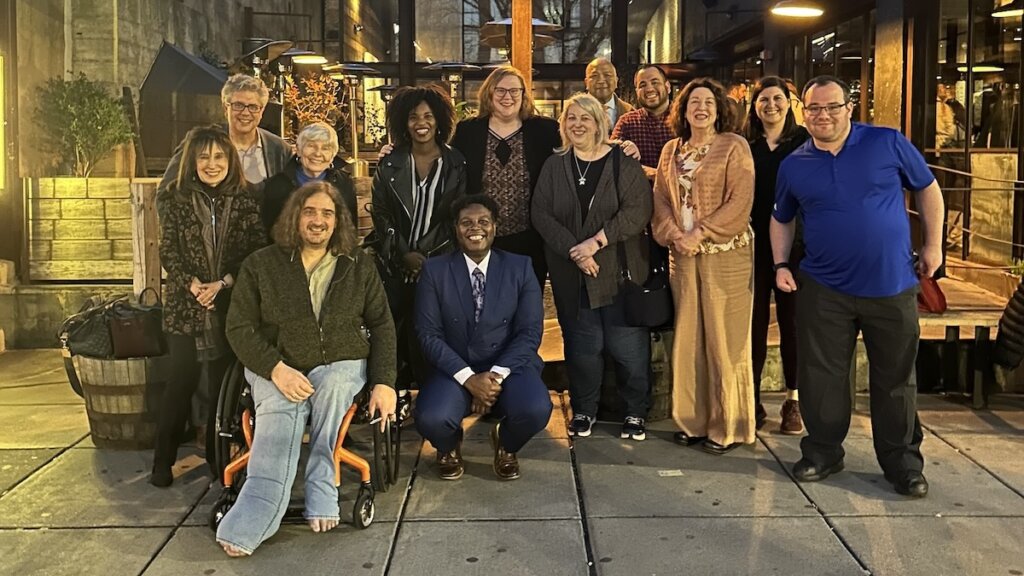 When I first joined RespectAbility, Ben was one of the first team members I met. He shared with me that RespectAbility was a family, not just a workplace, and it turns out, he was right. What he didn’t say back then, but I came to learn during my tenure, was that Ben was a big part of why RespectAbility is more than just a team of disabled and disability advocates working toward common goals. Ben recognized and appreciated the humanity in all of us and understood better than most that our authentic, disabled identities made us powerful human beings. These identities also make us better advocates and models for those who come after us. [continue reading…]
When I first joined RespectAbility, Ben was one of the first team members I met. He shared with me that RespectAbility was a family, not just a workplace, and it turns out, he was right. What he didn’t say back then, but I came to learn during my tenure, was that Ben was a big part of why RespectAbility is more than just a team of disabled and disability advocates working toward common goals. Ben recognized and appreciated the humanity in all of us and understood better than most that our authentic, disabled identities made us powerful human beings. These identities also make us better advocates and models for those who come after us. [continue reading…]
Thankful for Ben Spangenberg
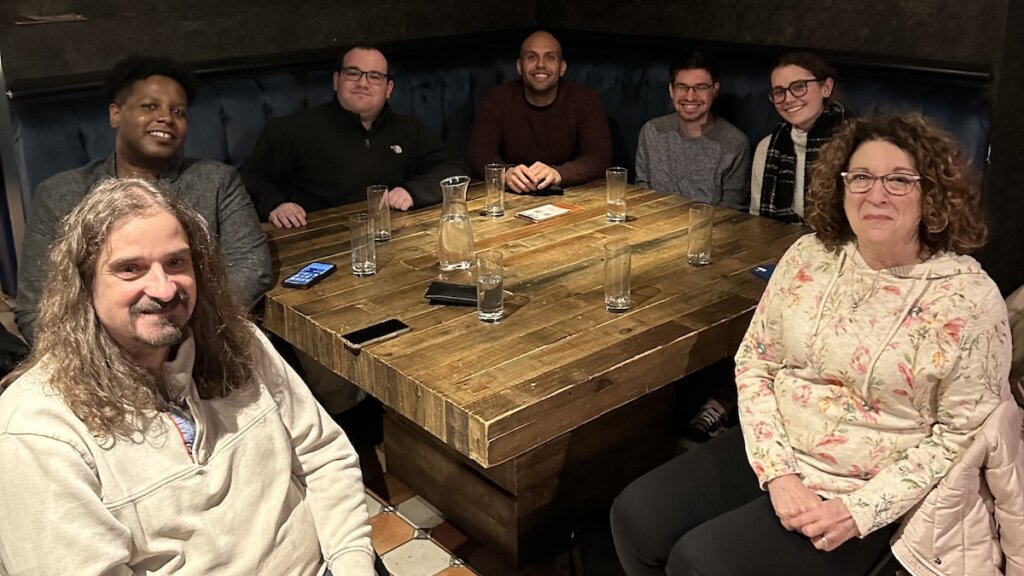
I initially joined RespectAbility as a Fellow in January 2018, as a part of the first Fellowship cohort that Ben was responsible for recruiting. Some of the people in that cohort remain my closest friends, and without Ben, I would have never met any of them.
Later in 2018, I joined the Staff. Ben and I worked together closely to promote the Fellowship program and supervise the Communications Fellows. I had never managed anyone before, but Ben was a great mentor to me in how to provide constructive feedback on assignments. He really cared about making sure that every single Fellow would leave the program ready for success in the workplace. I’m a better manager because of Ben. [continue reading…]


